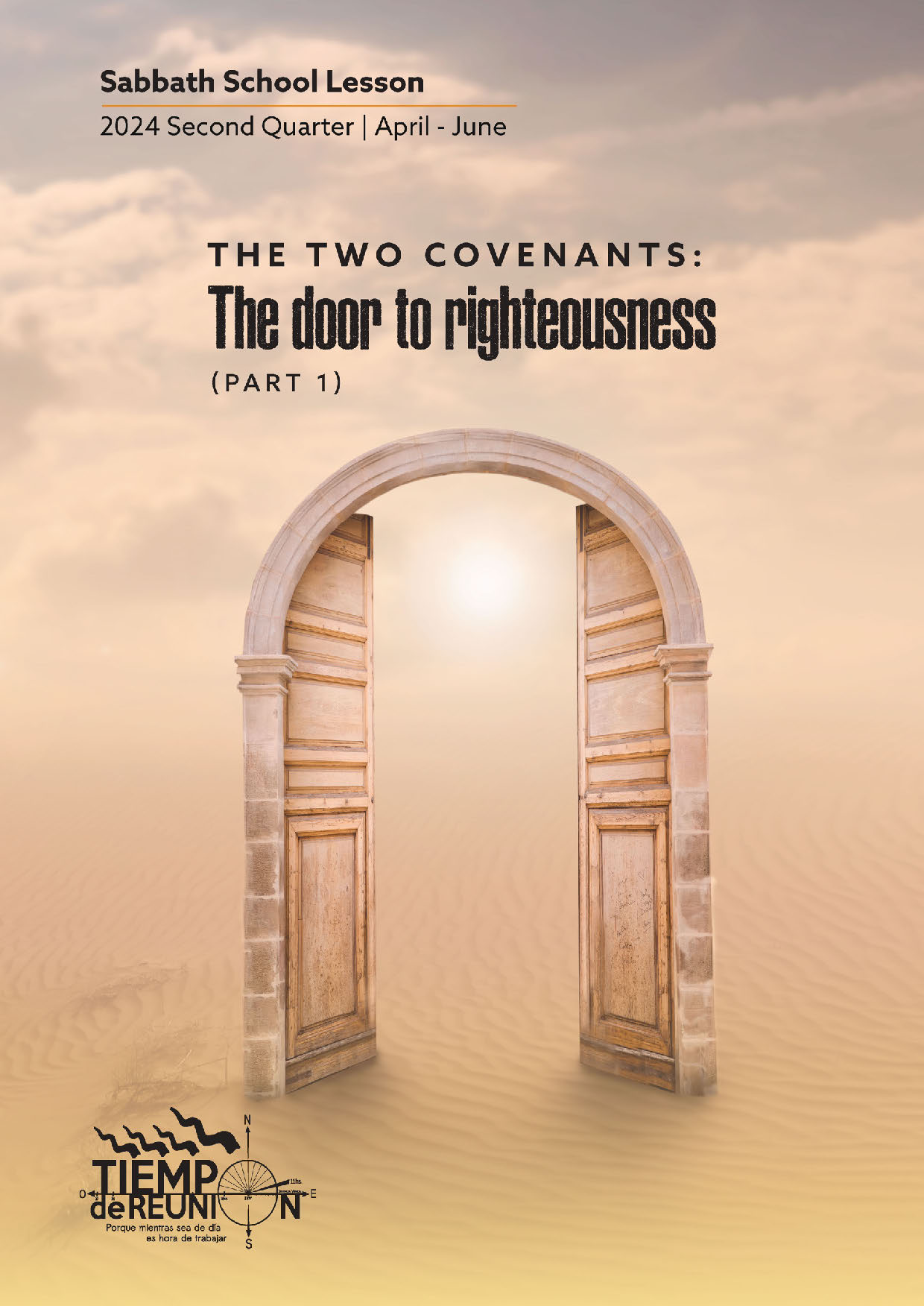Are you ready for the coming of Christ? True Sanctification in the Gospel
It’s a simple question that invites you to fulfil the command of Paul.
Examine yourselves as to whether you are in the faith. Test yourselves. Do you not know yourselves, that Jesus Christ is in you?—unless indeed you are disqualified. 2 Cor 13:5
The question is an invitation to see if we have found hope in the gospel of Christ. Not a false hope that promises all of heaven while we continue our evil deeds against others without a sense of accountability because we assure ourselves that we are forgiven. Instead it speaks to a hope that enables us to believe that the creative Spirit of God through Christ can transform us to be like Christ.
So as we allow the Spirit of God to search us as with a candle deep in our soul, do we have boldness in this day of judgement or do we see many things in our character that cause us to cry out,
Oh wretched man that I am! Who will deliver me from this body of death? Rom 7:24
Are we willing to walk through this experience? Are we willing to be made poor in spirit and then to mourn that we might receive the first two blessings of the Sermon on the Mount? (Matt 5:3,4)
Rather than allow themselves be exposed many say that they will eat their own bread and wear their own apparel and simply desire to be called Christian to take away their reproach. Such will be bound hand and foot and cast into outer darkness, for they have not sought for the wedding garment with tears and affliction of soul. Do we not live in the time of the final atonement?
It shall be to you a sabbath of solemn rest, and you shall afflict your souls; on the ninth day of the month at evening, from evening to evening, you shall celebrate your sabbath." Lev 23:32
So are you willing to be searched by the Word of God? Are you willing to have your photograph taken and consider it against the mirror of the royal law of liberty?
As the artist transfers to the canvas the features of the face, so the features of each individual character are transferred to the books of heaven. God has a perfect photograph of every man's character, and this photograph He compares with His law. He reveals to man the defects that mar his life, and calls upon him to repent and turn from sin (ST July 31, 1901).
Thank the Lord for the law of God! The Law of the Lord is perfect converting the soul; it is our precious school master that causes us to cry out:
God be merciful to me a sinner. Luke 18:13
As we behold our poor condition, we see that there is absolutely no human hope of us ever becoming right with God, the burden weighs heavily upon our pilgrim backs and the thoughts of certain judgement fill the soul. The law shuts us in and prevents any means of escape for those who accept the lawful claims of the Scripture - and so our mouths are stopped.
Now we know that what things soever the law saith, it saith to them who are under the law: that every mouth may be stopped, and all the world may become guilty before God. Rom 3:19
Yet it is at this critical point that the Spirit, having once convicted us of sin, then convicts us of righteousness. In the crucified and risen Saviour there is offered righteousness freely without one thread of human devising. The two thieves upon the cross reveal the choice we have. We either embrace the third blessing of the sermon of the mount and allow a meekness to flow into our souls and then the dawn of hope causes a hunger and thirst for righteousness, or refuse to accept our responsibility and begin to rail on the Saviour by saying, “if you are the Christ then save us.” (Luke 23:39). The desire for salvation without death, the desire to save one's life without losing it, will indeed cause the loss of the soul.
So the path of repentance is the path to the gospel. As Jesus said at the beginning of His ministry:
Mark 1:15 …repent ye, and believe the gospel.
It is the Spirit of God in man convicting him of sin and his hopeless condition that brings him to the gospel. When we repent by the grace of Christ the door opens for us to believe the gospel. Is this a once in a life time event? Does the work of repentance cease when the gospel is at first believed? God forbid!
God has given man a complete rule of life in his law. Obeyed, he shall live by it, through the merits of Christ. Transgressed, it has power to condemn. The law sends men to Christ, and Christ points them back to the law. RH Sep 27, 1881
If we were to have all our characters revealed to us in a moment, we would give up completely in despair; but our precious Saviour does not overwhelm us but invites us step by step to walk with Him to Calvary, to death and to resurrection. We are to take the land little by little.
By little and little I will drive them out from before thee, until thou be increased, and inherit the land. Exod 23:30
So the Spirit of God through the law reveals to us a little of our character that needs addressing. We are then brought to Christ in the gospel to receive the remedy for the defect of our character. The joy of forgiveness causes us to cry with Christ “O how I love thy law!” and so Christ points us back to the law that we might be instructed as to the next little piece of land that He wishes to conquer for us. We need not fear the giants in the land; they be but paper dragons in the face of the gospel.
The old life of alienation from God has ended; the new life of reconciliation, of faith and love, has begun. Then "the righteousness of the law" will "be fulfilled in us, who walk not after the flesh, but after the Spirit." Romans 8:4. And the language of the soul will be: "O how love I Thy law! it is my meditation all the day." Psalm 119:97
"The law of the Lord is perfect, converting the soul." Psalm 19:7. Without the law, men have no just conception of the purity and holiness of God or of their own guilt and uncleanness. They have no true conviction of sin and feel no need of repentance. Not seeing their lost condition as violators of God's law, they do not realize their need of the atoning blood of Christ. The hope of salvation is accepted without a radical change of heart or reformation of life. Thus superficial conversions abound, and multitudes are joined to the church who have never been united to Christ. . {GC 468.1}
Thus the law and the gospel work together to deepen our sense of utter dependence on Christ alone for salvation. This process of the law bringing to Christ and Christ pointing to the law is the work of Sanctification – meaning the perfecting of the characters of men. This work is progressive because we cannot take the land in one step, we are to take it little by little as the Lord leads us.
Erroneous theories of sanctification, also, springing from neglect or rejection of the divine law, have a prominent place in the religious movements of the day. These theories are both false in doctrine and dangerous in practical results; and the fact that they are so generally finding favor, renders it doubly essential that all have a clear understanding of what the Scriptures teach upon this point.
True sanctification is a Bible doctrine. The apostle Paul, in his letter to the Thessalonian church, declares: "This is the will of God, even your sanctification." And he prays: "The very God of peace sanctify you wholly." 1 Thessalonians 4:3; 5:23. The Bible clearly teaches what sanctification is and how it is to be attained. The Saviour prayed for His disciples: "Sanctify them through Thy truth: Thy word is truth." John 17:17. And Paul teaches that believers are to be "sanctified by the Holy Ghost." Romans 15:16. What is the work of the Holy Spirit? Jesus told His disciples: "When He, the Spirit of truth, is come, He will guide you into all truth." John 16:13. And the psalmist says: "Thy law is the truth." By the word and the Spirit of God are opened to men the great principles of righteousness embodied in His law. And since the law of God is "holy, and just, and good," a transcript of the divine perfection, it follows that a character formed by obedience to that law will be holy. Christ is a perfect example of such a character. He says: "I have kept My Father's commandments." "I do always those things that please Him." John 15:10; 8:29. The followers of Christ are to become like Him--by the grace of God to form characters in harmony with the principles of His holy law. This is Bible sanctification.This work can be accomplished only through faith in Christ, by the power of the indwelling Spirit of God. Paul admonishes believers: "Work out your own salvation with fear and trembling. For it is God which worketh in you both to will and to do of His good pleasure." Philippians 2:12, 13. The Christian will feel the promptings of sin, but he will [470] maintain a constant warfare against it. Here is where Christ's help is needed. Human weakness becomes united to divine strength, and faith exclaims: "Thanks be to God, which giveth us the victory through our Lord Jesus Christ." 1 Corinthians 15:57.
The Scriptures plainly show that the work of sanctification is progressive. When in conversion the sinner finds peace with God through the blood of the atonement, the Christian life has but just begun. Now he is to "go on unto perfection;" to grow up "unto the measure of the stature of the fullness of Christ." Says the apostle Paul: "This one thing I do, forgetting those things which are behind, and reaching forth unto those things which are before, I press toward the mark for the prize of the high calling of God in Christ Jesus." Philippians 3:13, 14. And Peter sets before us the steps by which Bible sanctification is to be attained: "Giving all diligence, add to your faith virtue; and to virtue knowledge; and to knowledge temperance; and to temperance patience; and to patience godliness; and to godliness brotherly kindness; and to brotherly kindness charity. . . . If ye do these things, ye shall never fall." 2 Peter 1:5-10. {GC 469, 470}
As we read the Word of God, and chiefly as we read of the sacred nature of the Law of God, the one part of the Bible spoken and written by the very finger of God, we repeatedly are brought to Christ. We are repeatedly found to say, “Lord have mercy on me a sinner.”
At every advance step in our Christian experience our repentance will deepen. We shall know that our sufficiency is in Christ alone and shall make the apostle's confession our own: "I know that in me (that is, in my flesh,) dwelleth no good thing." "God forbid that I should glory, save in the cross of our Lord Jesus Christ, by whom the world is crucified unto me, and I unto the world." Romans 7:18; Galatians 6:14. {AA 561.2}
This is a narrow path that we must walk. There are ditches on either side of this path. The ditch on one side is to continue in sin that grace may abound. The ditch on the other side is that, because we testify that we love God’s law, that at some point we foolishly say: “all that the Lord has said we [in our own power] will do.” Any man who boasts in the law and compares himself with other men whom do not uphold the law as he does has fallen from grace.
Rom 2:17 Behold, thou art called a Jew, and restest in the law, and makest thy boast of God, And knowest his will, and approvest the things that are more excellent, being instructed out of the law; …(23) Thou that makest thy boast of the law, through breaking the law dishonourest thou God? (24) For the name of God is blasphemed among the Gentiles through you, as it is written. (25) For circumcision verily profiteth, if thou keep the law: but if thou be a breaker of the law, thy circumcision is made uncircumcision.
The law has no power outside of Christ to change anything in man. There is one thing that the law has perfected. I have removed the supplied word that it might read correctly.
For the law made nothing perfect, but the bringing in of a better hope, by the which we draw nigh unto God. Heb 7:19
The law has perfected the bringing in of a better hope by which we draw nigh to God. It is the school master that converts the soul to see its hopeless condition, and then prompts us to arise and go to our Father’s house where we receive the garments of salvation and are shod with the preparation of the gospel of peace. Eph 6:15
So when we hear the law thundering into our soul causing us to quake for fear, let us not plead for other mediators but rather come to the one mediator between God and man and be not afraid. Let the law bring you to Christ that you might be complete in Him. Let this work continue and deepen in your soul so that you will continue both to see the utter wretchedness of your soul and at the same time the wonders of the grace of God. As we behold with what mercy we have been granted, we shall be merciful and obtain the next blessing of the Sermon on the Mount. (Matt 5:7). The purity of the righteousness of Jesus will be manifest in us and we shall indeed be agents of peace, being peacemakers, by announcing to men to be reconciled to God, that God is not against us and that the middle wall of partition has been broken down that we might become part of the commonwealth of Israel and children of Abraham.
Those who walk this path will no doubt be persecuted for righteousness sake. There is a way that seems right to a man but the ends thereof are death. Satan desires to destroy the relationship between the law and the gospel which is the same as the relationship between the Father and His Son. The Protestant world says forget about the law, entertaining the vain hope that either sanctification is instantaneous or simply not required. They cry away with the Father and His law. The Jews, Muslims and those Christians who follow a “merit from the law” approach say away with Christ, give us the law! On such will bring the curse upon themselves for as it says, “cursed is everyone that does not continue in all the things written in the book of the law to do them.” Gal 3:10. He who would be saved by the law will die under the curse of it because no man can ever keep the law without Christ.
Professed Christians now cry, Christ! Christ is our righteousness, but away with the law. They talk and act as though Christ's mission to a fallen world was for the express purpose of nullifying his Father's law. Could not that work have been just as well executed without the only beloved of the Father coming to this world and enduring grief, privation, and the shameful death of the cross? Ministers preach that the atonement gave men liberty to break the law of God, and to commit sin, and then praise the free grace and mercy revealed through Christ under the gospel, while they despise the law of God.
They cast aside the restraint of the law, and give loose rein to the corrupt passions and the promptings of the natural heart, and then triumph in the mercy and grace of the gospel. Christ speaks to such: "Not every one that saith unto me, Lord, Lord, shall enter into the kingdom of Heaven; but he that doeth the will of my Father which is in Heaven." What is the will of the Father? That we keep his commandments. Christ, to enforce the will of his Father, became the author of the statutes and precepts given through Moses to the people of God. Christians who extol Christ, but array themselves against the law governing the Jewish church, array Christ against Christ. {RH, May 6, 1875}
So now today, as you examine yourself in light of the holy law of God, do you see your imperfections and weaknesses? There is a balm in Gilead! Do you see that the further you go, the worse your character appears? There is forgiveness in the blood of Christ! Accept the verdict of the law. Do not use the gospel to climb over the wall. Enter in at the strait gate. Pass through the door of repentance and then the gospel will strengthen and empower you. Do not pit Christ against Christ and tell him, “I don’t care about my sins, Jesus forgives everything and I don’t have to worry about it.” This is a deception. Only through repentance can you say you no longer have to worry about your sins. The path of truth and error lay side by side. One leads to Doubting Castle and the other to Mount Zion.
As one deeply convicted by the law, find in the arms of Jesus a tender solace and healing for your soul. The joy of forgiveness is measured by your sorrow for your sin. He that is forgiven little loveth little. (Luke 7:47). In magnifying our sin, the law points us to a place where there is magnified forgiveness and cleansing.
Have you thought things today against your family and friends? Have you had feelings of self-pity and resentment towards those who have knowingly or unknowingly hurt you? Have you indulged yourself in self-pity and rewarded yourself with a feast of unhealthy food, music or movies that release a cocktail of thoughts and actions that stain the soul? Let the law do its work in you. Allow the Spirit of God to bring you to Christ where healing for these things can be found and you can walk in the promise of Jesus. Believe the Word:
Neither do I condemn you: Go and sin no more. John 8:11
That the righteousness of the law might be fulfilled in us, who walk not after the flesh, but after the Spirit. Rom 8:4




